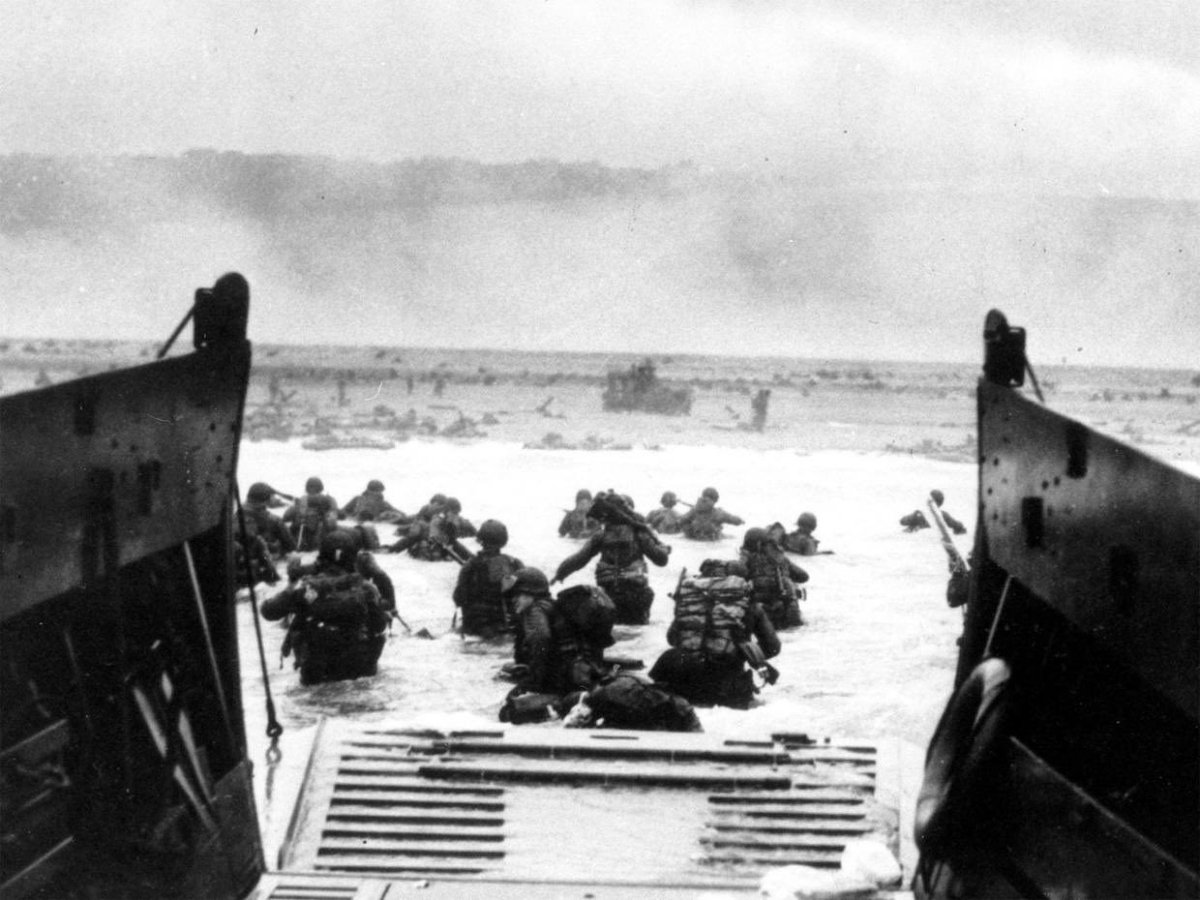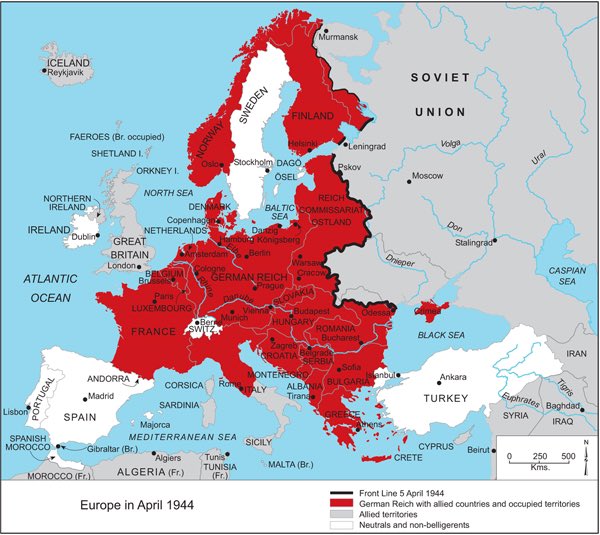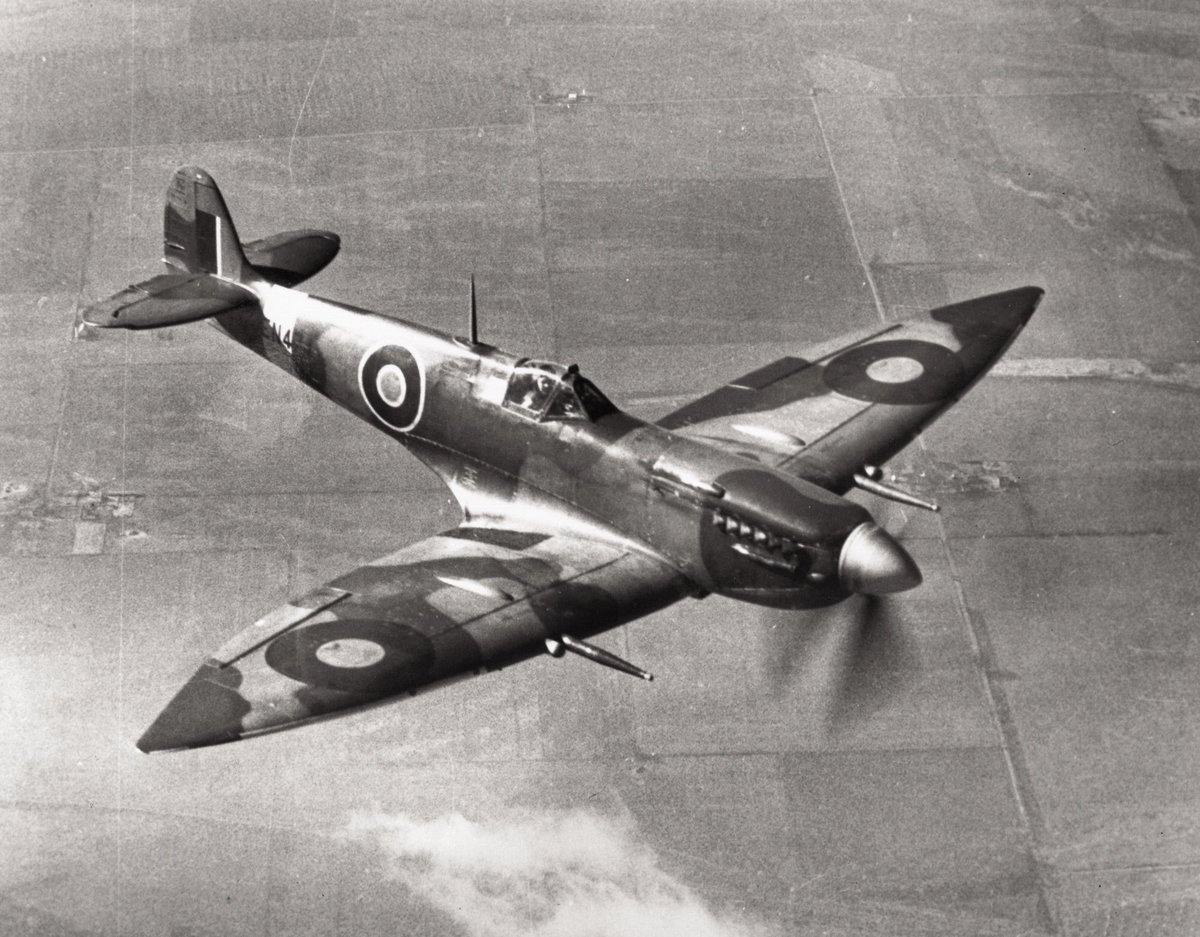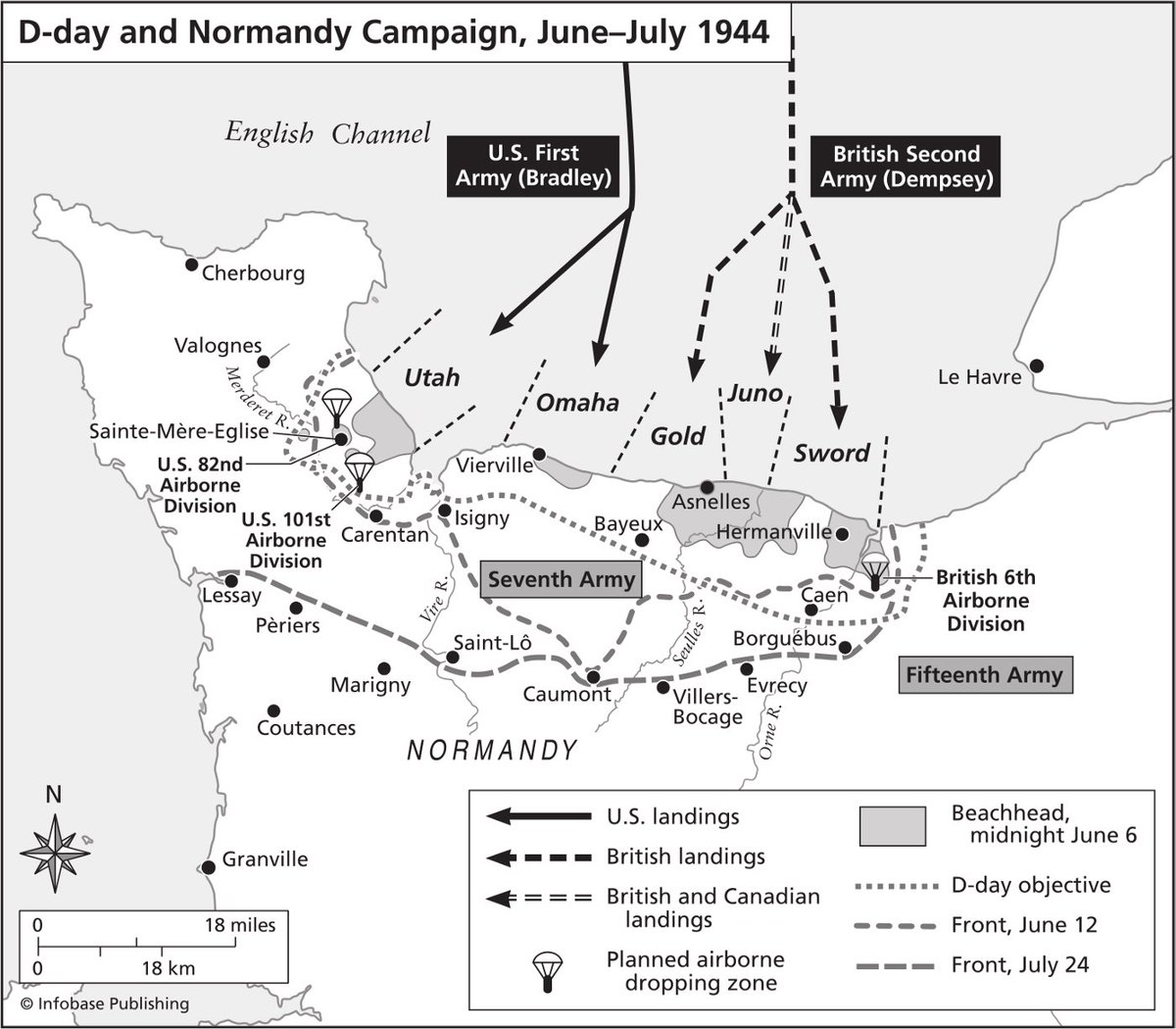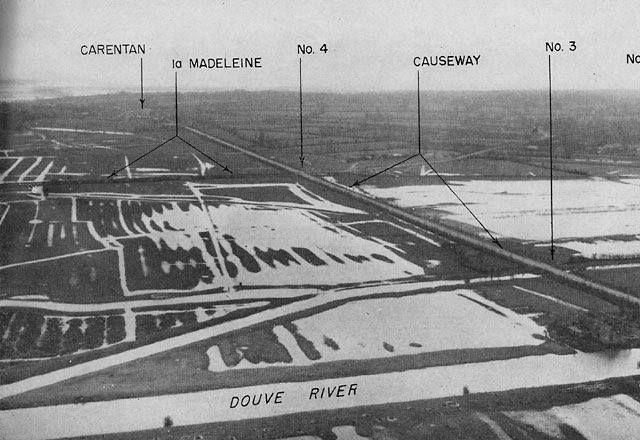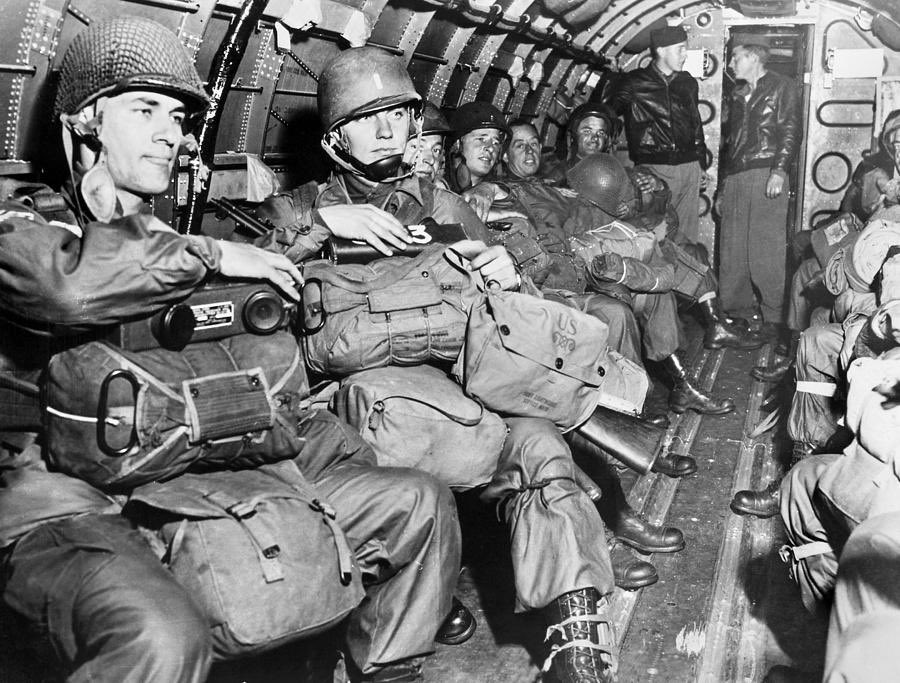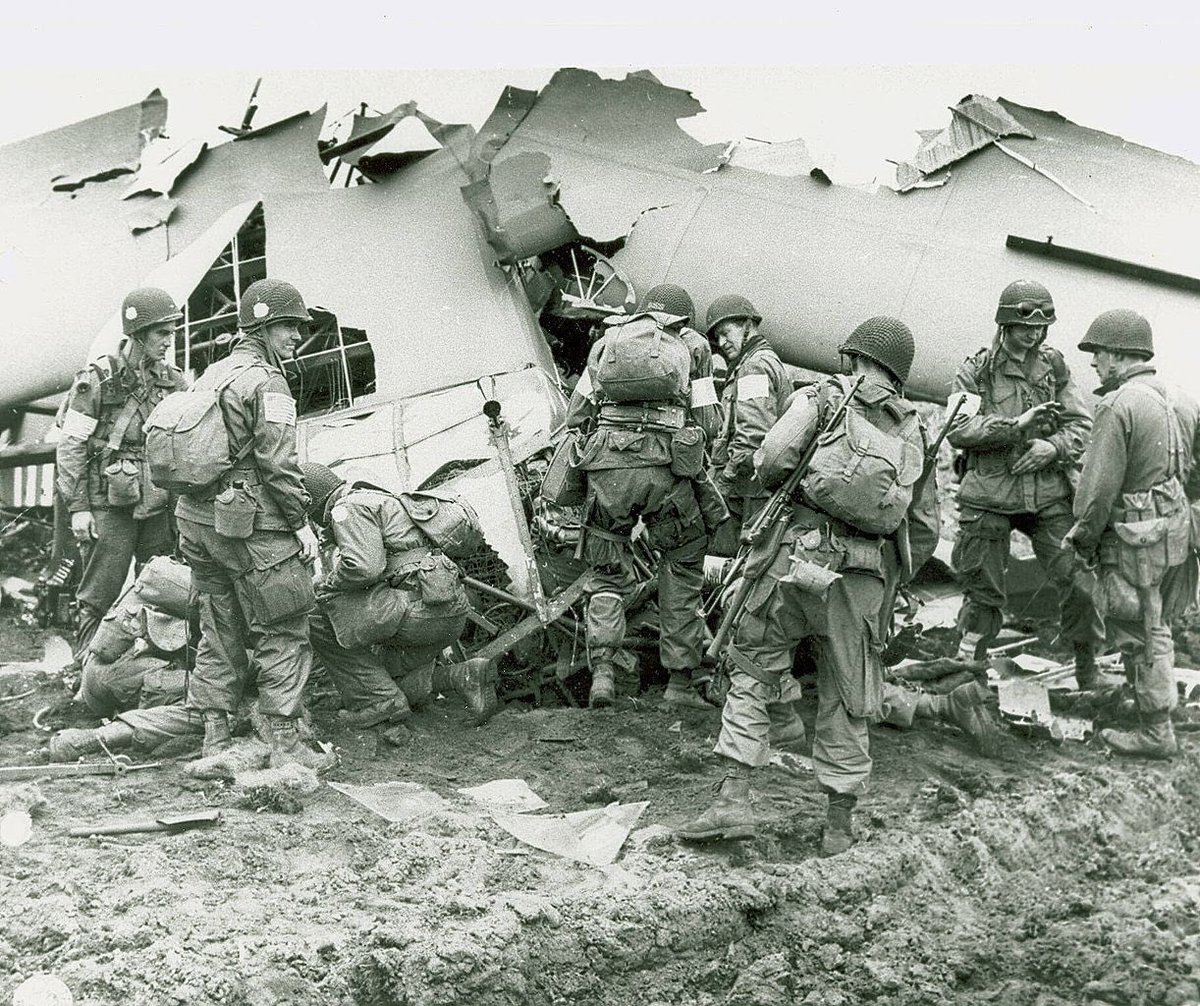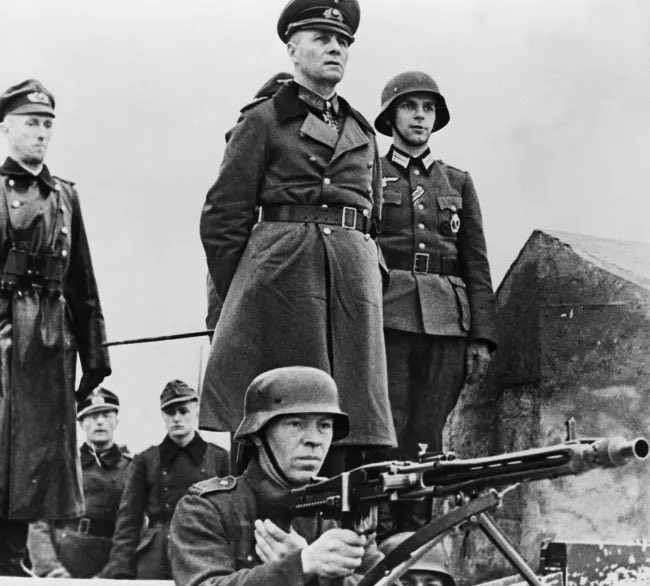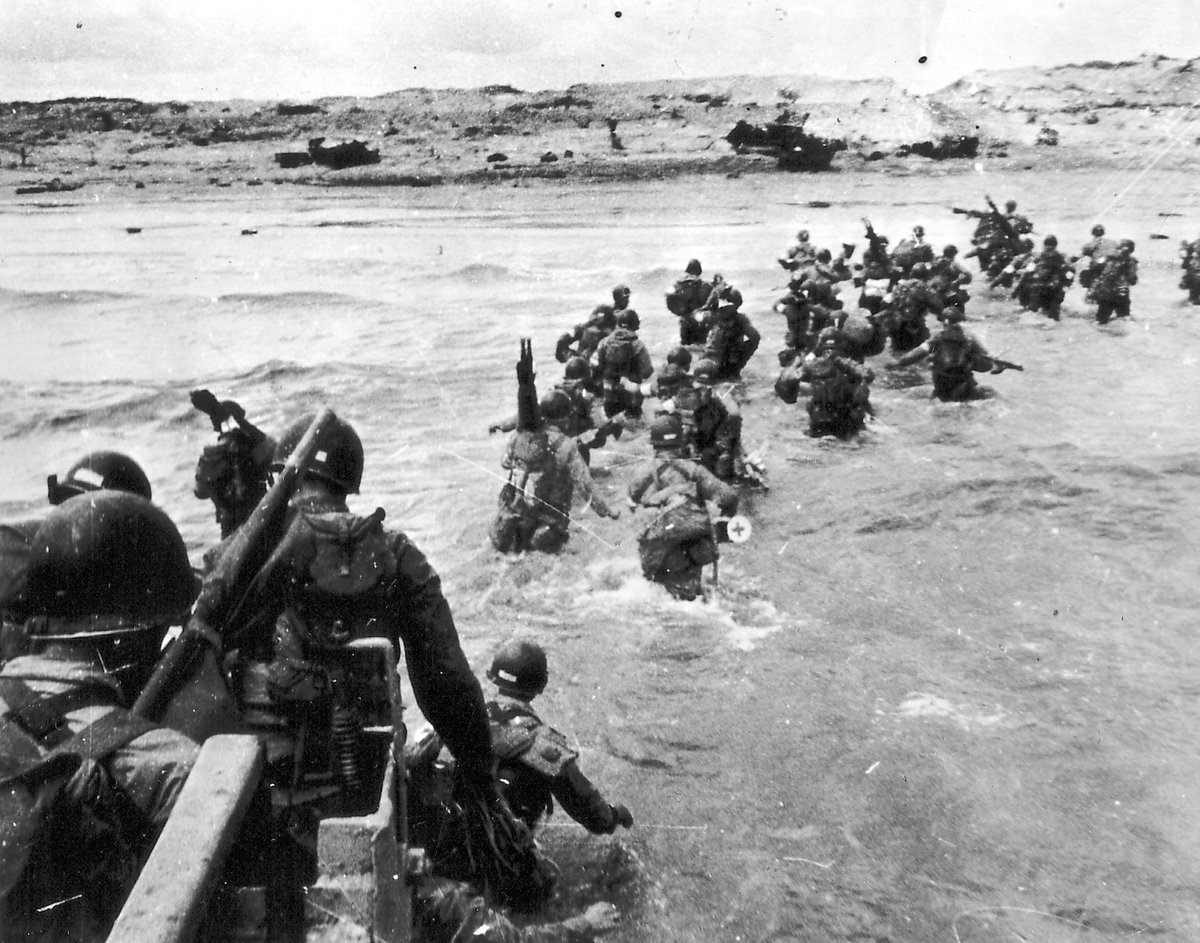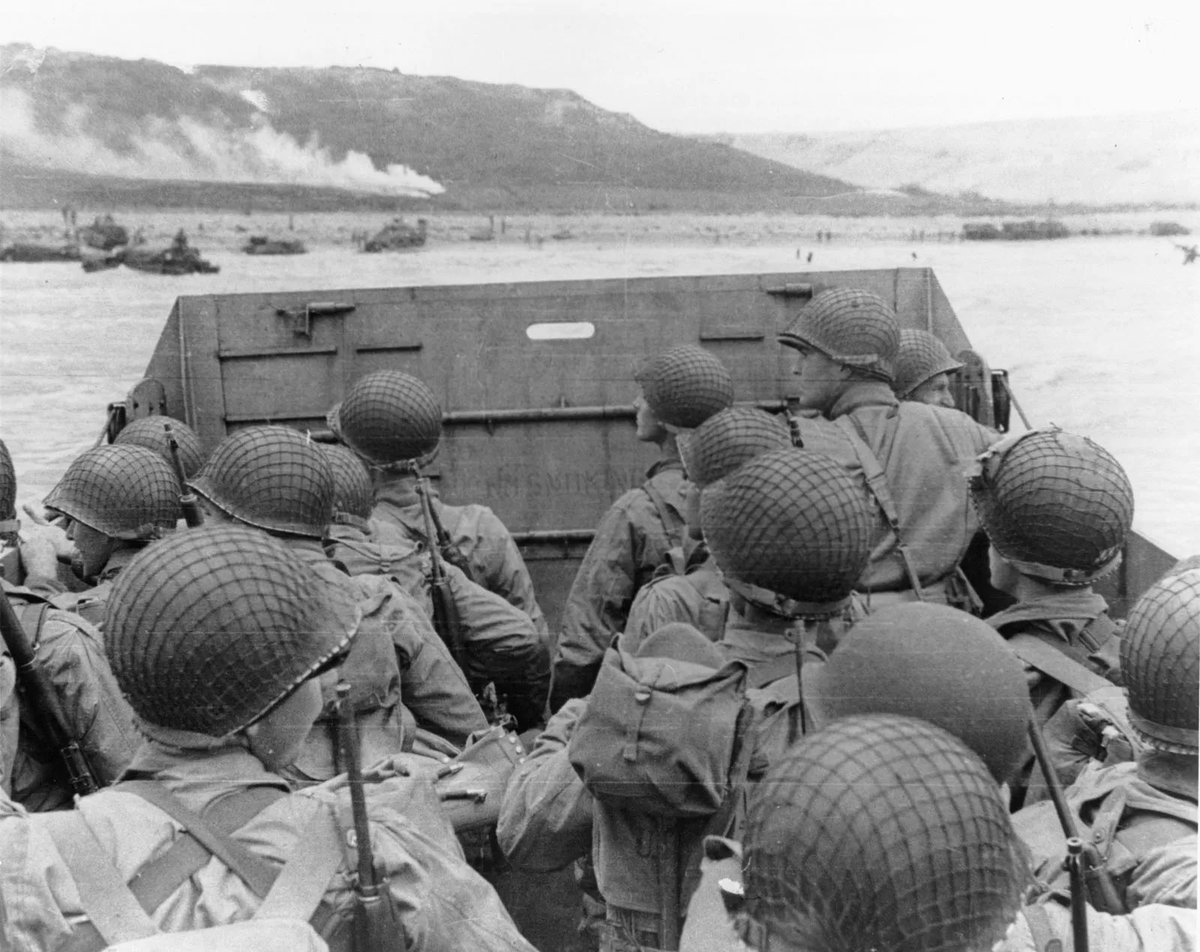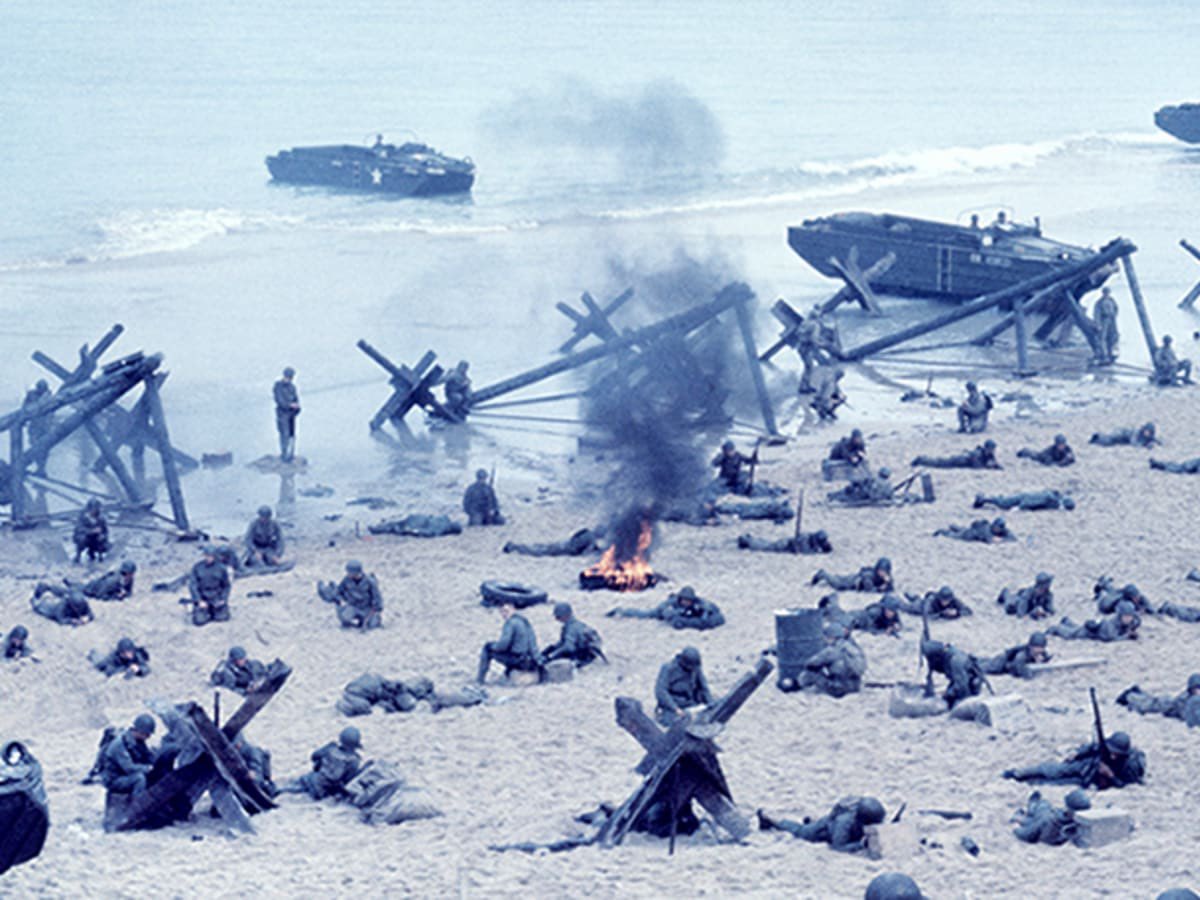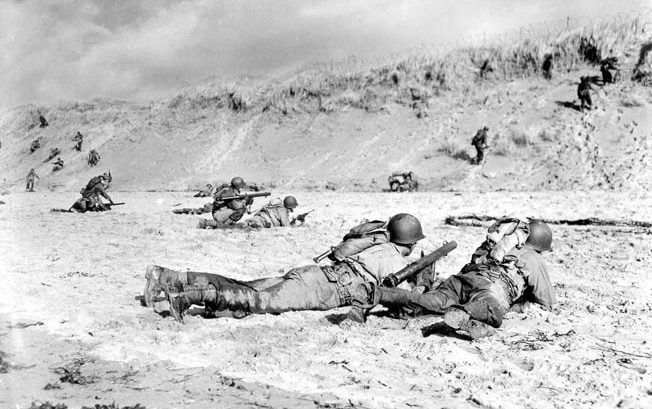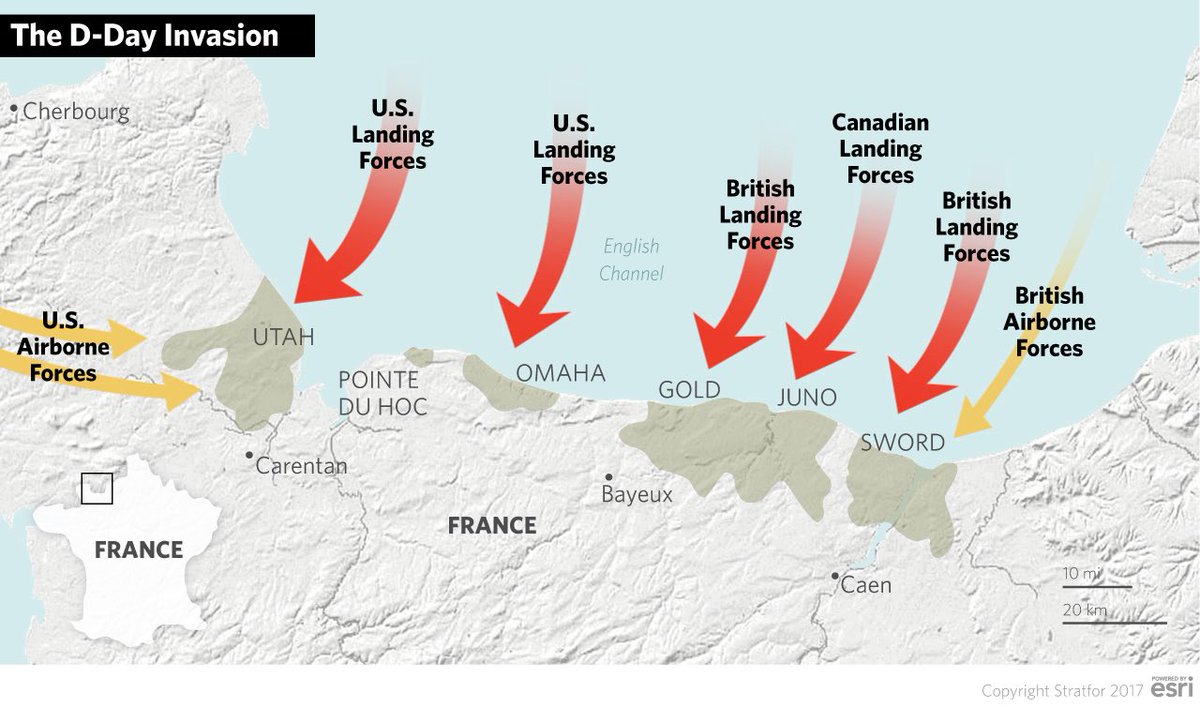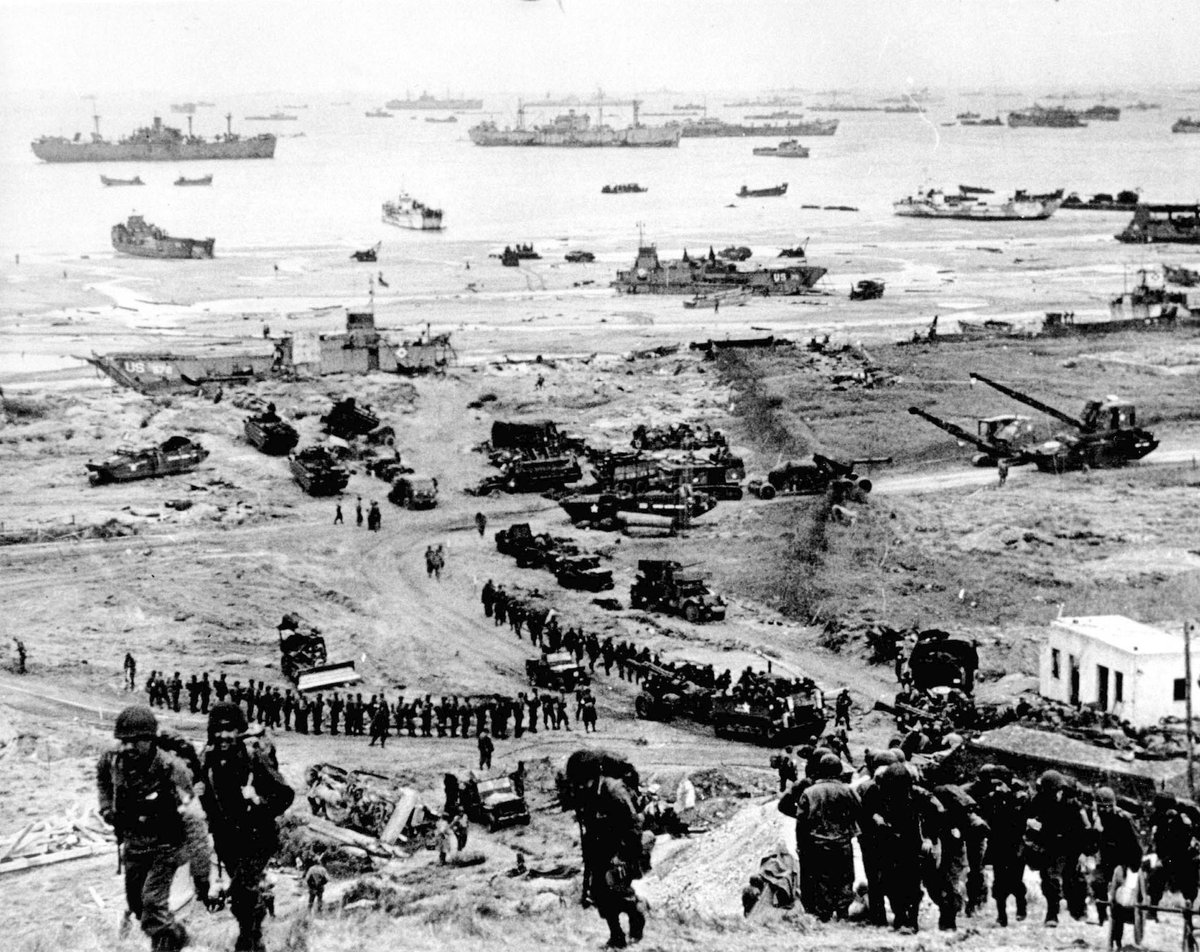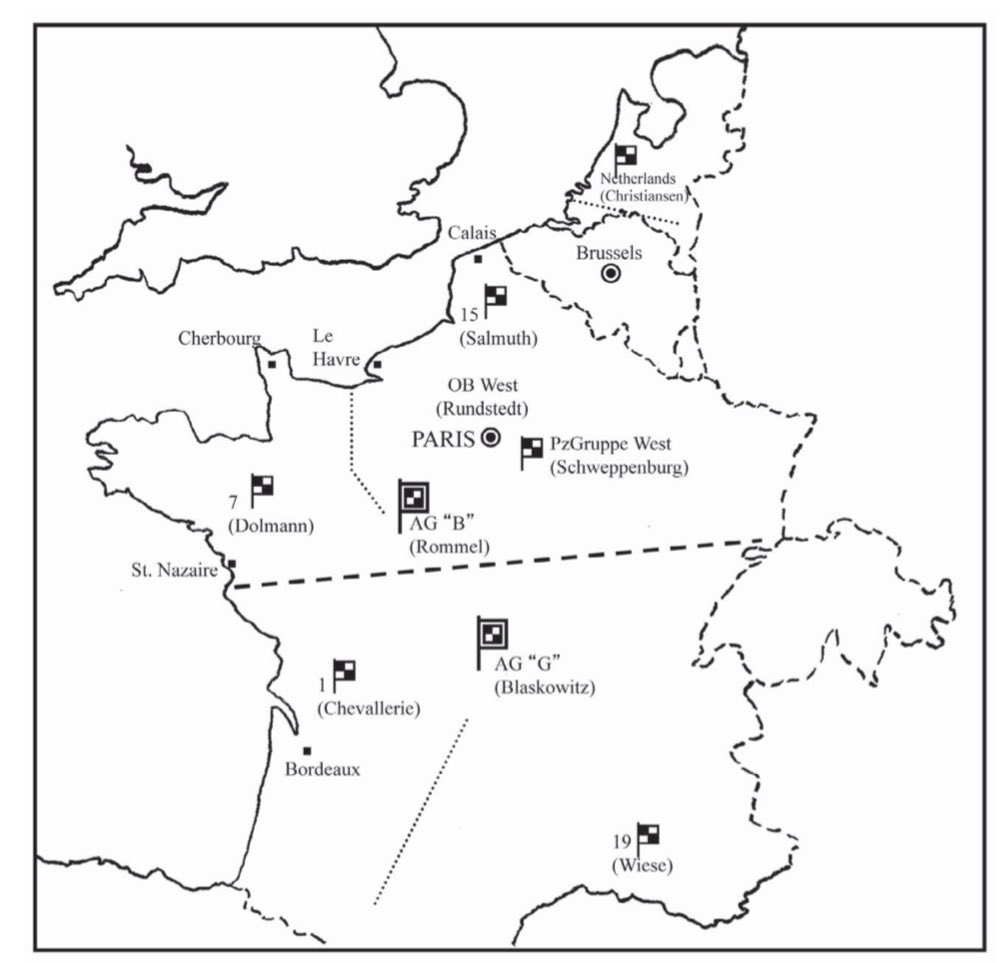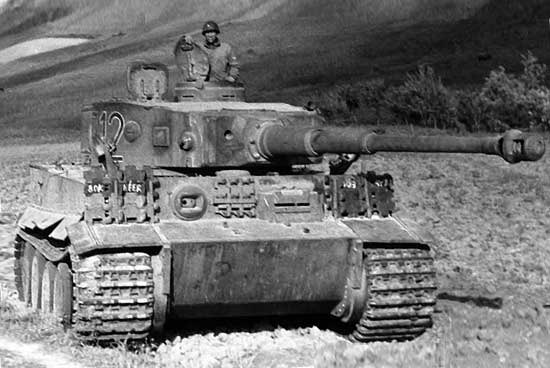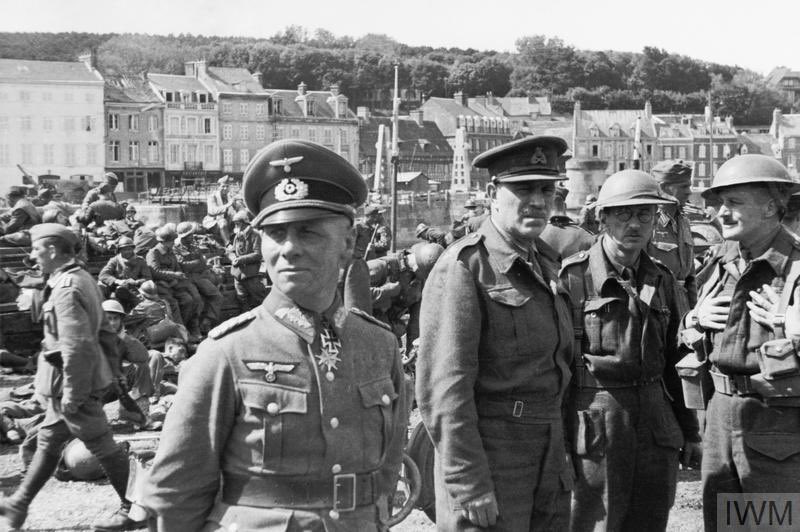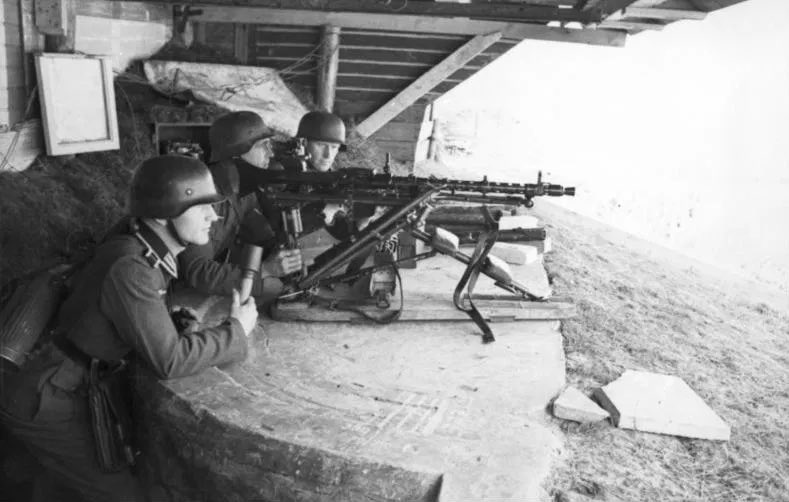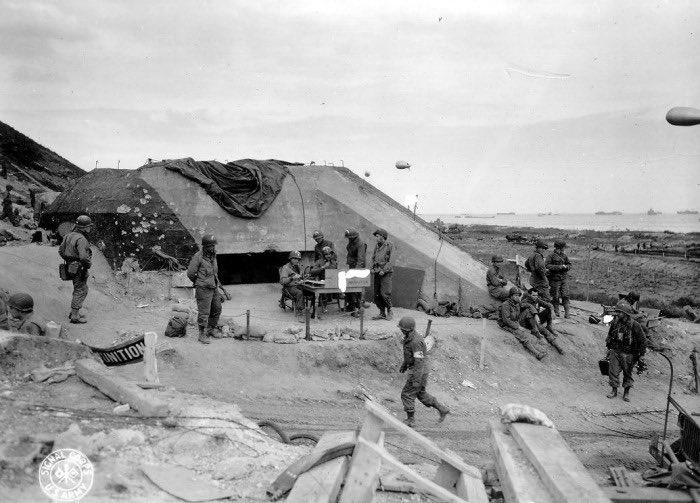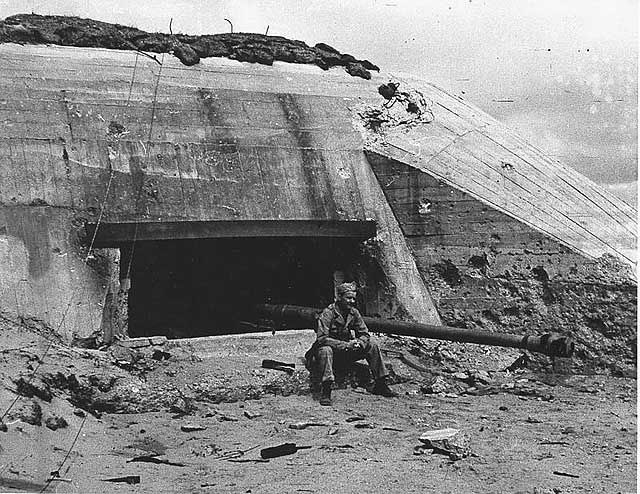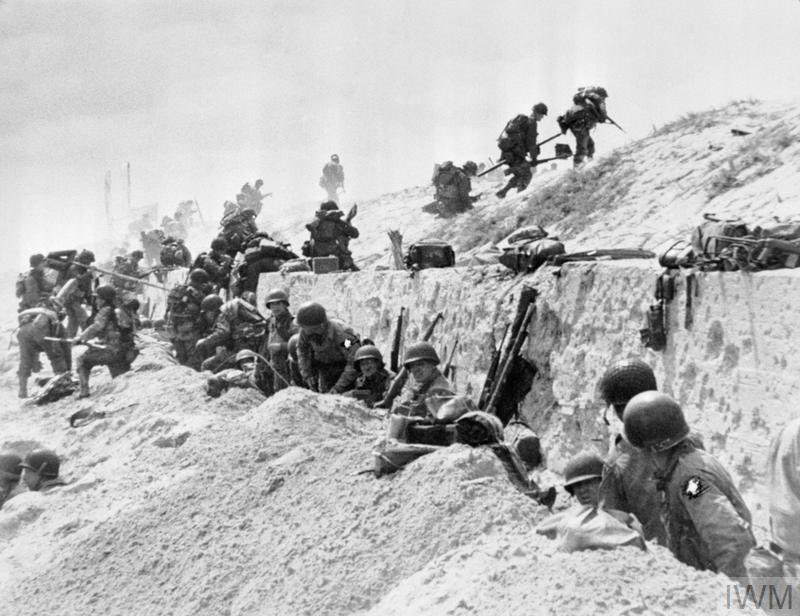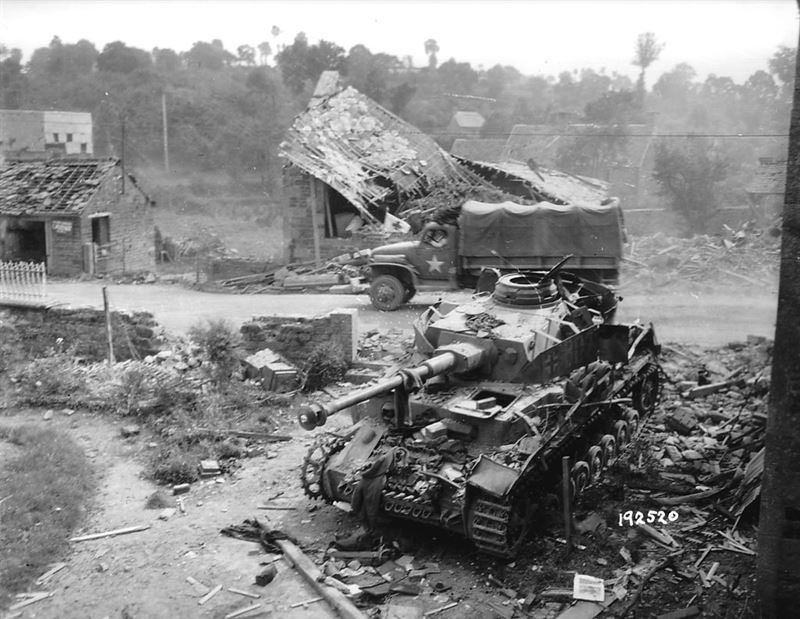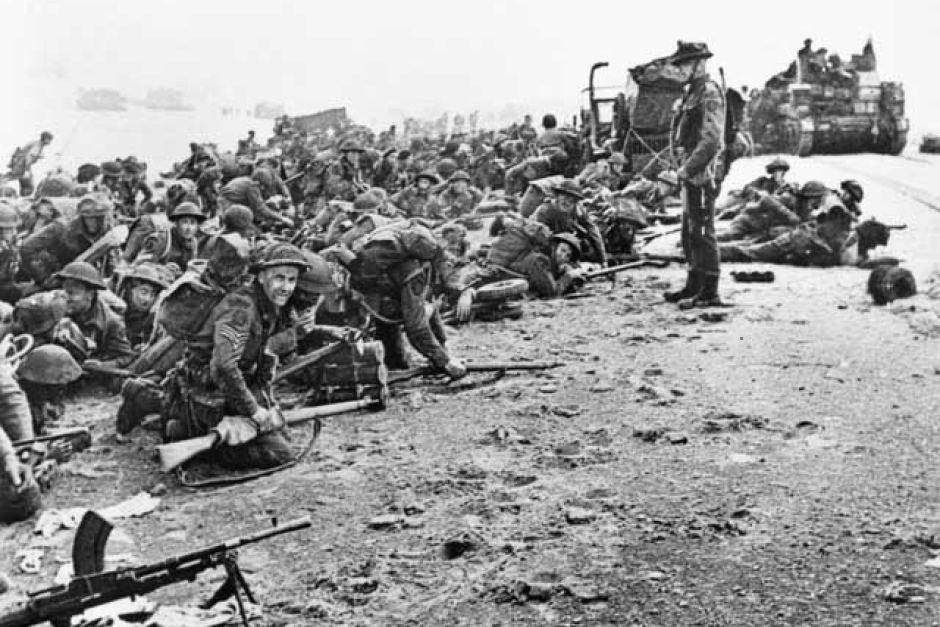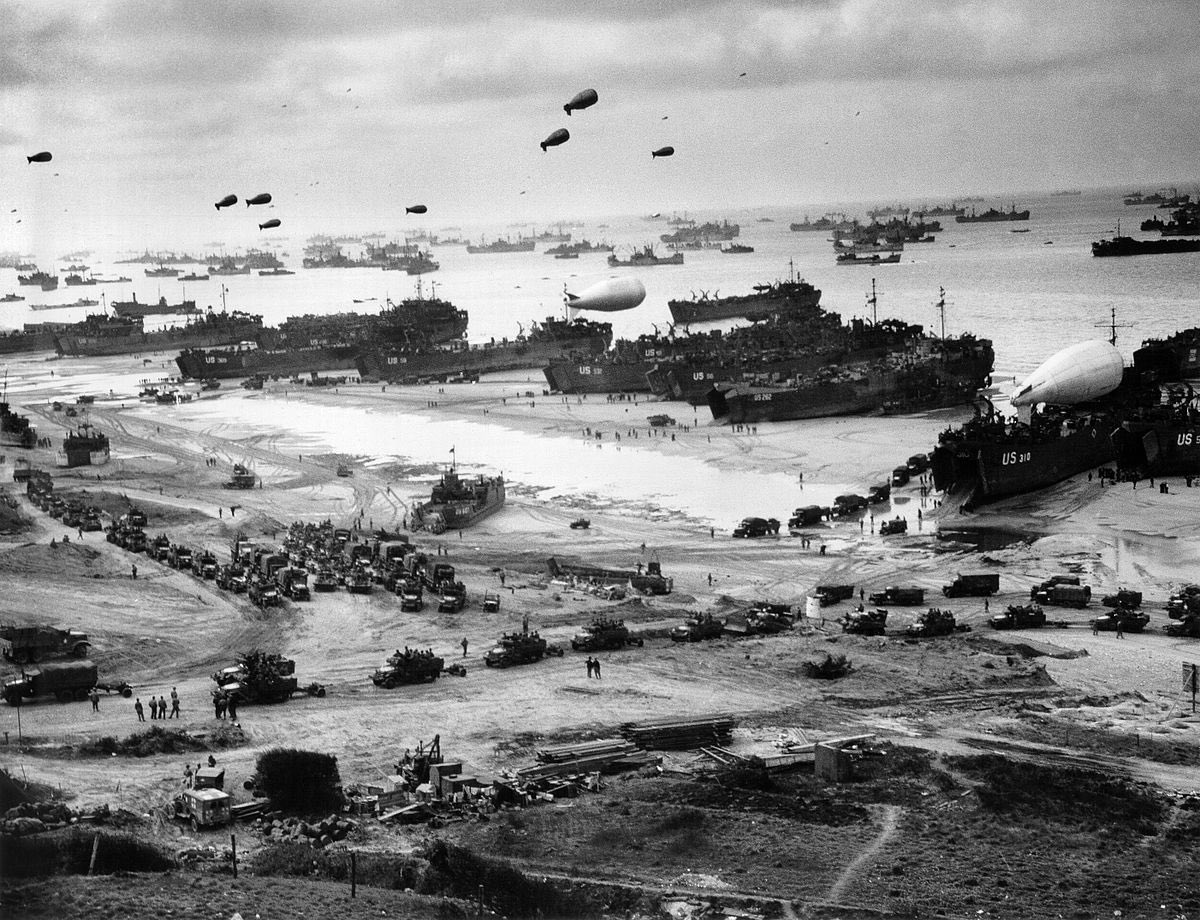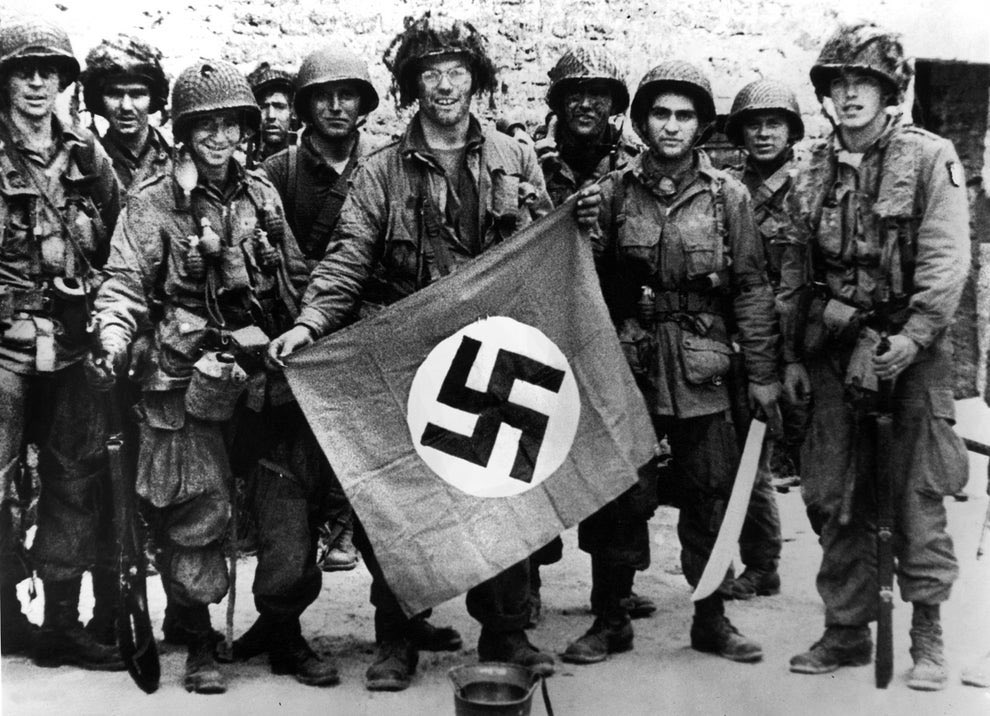Thread: D-Day and the Invasion of Normandy
The D-Day landings in Normandy on June 6, 1944, are perhaps the most famous battle of the Second World War for Americans. But was it really like the titanic movie battles? Let’s take a closer look at this staple of western lore. (1)
The D-Day landings in Normandy on June 6, 1944, are perhaps the most famous battle of the Second World War for Americans. But was it really like the titanic movie battles? Let’s take a closer look at this staple of western lore. (1)
By mid 1944, the German strategic position was completely compromised. The Red Army was pushing them inexorably westward, Italy was knocked out of the war, and they’d lost their North African position. Their occupation of France and the Low Countries remained intact, however. (2)
It was clear that the western Allies would attempt a landing somewhere on the continent, but where, exactly, was difficult to predict. Allied control of the air and seas made German offshore reconnaissance virtually impossible. (3)
The Normandy landings (Operation Neptune) were conceived as part of a larger plan called Operation Overlord which aimed to liberate northern France. Neptune called for landings at 5 different beaches, coordinated with airborne drops in German rear areas. (4)
We’ll start by looking at the airborne operations. Many of the areas immediately behind the beaches were flooded fields, and the allies worried about the Germans blocking the causeways and bridges and bottling them up. The airdrops were meant to secure these roads. (5)
American paratroopers are famous, being the subject of both Saving Private Ryan and Band of Brothers. However, the Normandy airdrop was a disaster. Poor weather and confusion resulted in the troopers being scattered widely around and far from their objectives. (6)
While the airborne fought hard, they were too widely dispersed to achieve their objectives and took higher than expected casualties. Overall, they had little impact on the overall course of the battle. (7)
Now we come to the beaches. In theory, the Germans intended to fortify the coastline (Hitler’s “Atlantic Wall”) and turn the entire region into a fortress. However, by this stage in the war the Germans simply lacked the manpower and guns to properly man such defenses. (8)
As a result, the defenses varied widely between beaches. At Utah Beach, the 4th infantry division landed and was engaged by what amounted to a German picket line. 21,000 troops were able to land with only 197 casualties! (9)
Omaha Beach was another story. Here, the allied naval bombardment failed to impact German defenses, and the rough waters sunk almost all of the amphibious tanks. Omaha was also defended by a full regiment of first line German infantry. (10)
The first wave on the beach (including my own great grandfather) was raked with machine gun fire and forced to shelter behind a low sea wall. Unfortunately, they were unable to communicate this to command, and additional waves came in, piling up on the beach. (11)
The crisis at Omaha was so bad that General Omar Bradley, watching from offshore through binoculars, considered calling it off and ordering an evacuation. However, officers on the beach took initiative and managed to rally infantry to punch up the cliffs and break out. (12)
At the end of June 6, the allies had achieved none of their first day objectives. The five beaches all remained disconnected from one another, and the airborne had secured none of their rear area objectives. Operationally, D-Day was a disappointment. (13)
Even on beaches where there was little resistance (Utah, Sword, and Gold), allied forces did not push into rear areas or link up with neighboring beaches.
And yet, as we know, the Germans lost in Normandy. So what happened? Why did the allied misfire ultimately not matter? (14)
And yet, as we know, the Germans lost in Normandy. So what happened? Why did the allied misfire ultimately not matter? (14)
German defenses were dysfunctional. On paper Germany had nine panzer divisions in France, but - not knowing where the attack would come - these reserves were distributed around the theater. Only one panzer division was in range to immediately intervene in Normandy. (15)
Lacking sufficient mobile reserves, the Germans became overly hesitant and lethargic about responding - afraid of accidentally falling for a diversionary attack and sending the panzers to the wrong place. Their material inferiority bred paralysis. (16)
The Germans also had command difficulties - many commanders were traveling, and Rommel was famously on personal leave for his wife’s birthday. German command in France was in disarray and unable to coordinate a concerted counterattack. (17)
Before the invasion, German leadership had disagreed about how to respond to a landing. Some wanted to position reserves near the beaches and mount a water’s edge defense, while others favored holding a single large reserve for a massive counterattack. (18)
In the end, the Germans did neither. Instead, their reserves shuttled back and forth in a disorganized firefighting attempt, neither defending the beaches proper nor mounting a coordinated counterattack. At no point were the allied beachheads in danger. (19)
The problem was simple: the Germans were woefully, hilariously outgunned and outmanned. The concrete bunkers certainly look impressive, but on June 6 the gun emplacements were mostly empty, and the German machine gunners ran low on ammo by the end of the day. (20)
D-Day was hardly a close-run battle. The Anglo-Americans largely bungled the first few days and never came close to achieving their objectives on schedule, but the Germans simply lacked the forces to make these misfires matter. (21)
As always, in the instances where the Germans did take initiative and press hard, the allies could always lean on air support and the massive firepower of the offshore naval artillery. The Germans simply could not maneuver in such conditions. (22)
Had the Germans been able to man all the beaches with adequate infantry, as at Omaha, and had they possessed adequate armor and fire support, D-Day could have been a colossal disaster. The allied forces left themselves extremely vulnerable for the first few days. (23)
Ultimately, the story of D-Day is about the ability of firepower to cover a multitude of operational sins. Infantry stuck on the beach, airborne drops scattered - these mistakes would matter in a contest between evenly matched forces. But that’s not what this war was. (24)
Operation Neptune was a bit like driving drunk in an armored bulldozer - unsteady, wobbly, and not very elegant, but the sheer power and mass ensures that you arrive safely in the end. So the allied bulldozer rolled over the Germans, despite the sloppy start. (25)
Addendum: One popular myth is that the Germans lost in Normandy because Hitler had a migraine and was asleep when the landings happened. That much is true, but unimportant. There was no decision that Hitler could have made that would have saved his overmatched army.

 Read on Twitter
Read on Twitter